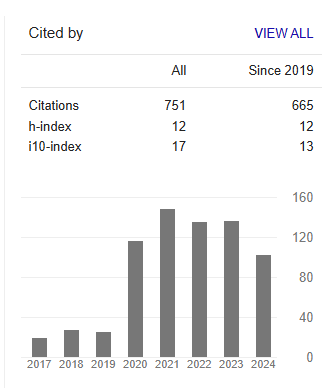Study of Infectious Diarrheas, In Transylvania, Romania
Abstract
Liana Monica Deac
“Diarrhea” is an alteration in a normal bowel movement characterized by an increase in the water content, volume, or frequency of stools. Acute diarrhea of infec¬tious etiology, often referred to as gastroenteri¬tis and is typically associated with clinical signs and symptoms including: nausea, vomiting, abdomi¬nal pain and cramps, bloating, flatulence, fever, passage of bloody stools, tenesmus, and fecal ur¬gency. Infectious diarrheal diseases are the second leading cause of morbidity and mortality worldwide. It is the diarrhea we have also found out, during a large 3 yeas study 2017-2020 in Transylvania – Romania. 3577 number of cases were transmitted during this time by the 12 territory sanitary polices, to the Epidemiology Department from the Public Health Center Cluj. These were mostly diagnosed by the territorial family doctors in the region and more than 20%, have need hospitalization, for several days, because of the mentioned disease disorders 3 children died during this time, because of severe complications. The detected infectious microbial etiology, were determined in authorized laboratories, in which it was identified: Shigella spp, Salmonella spp Campylobacter spp, and Yersinia spp. or Rotavirus Giardia, and Fungi species. Most number of cases appeared in children, followed by elderly or adult people, as quantified number of determination.
In light of these data, acute diarrheal illness had to be considered a major public health issue against which control efforts are needed. Public health surveillance and response in the field of infectious acute diarrhea include obligatory strategies of infection control.



